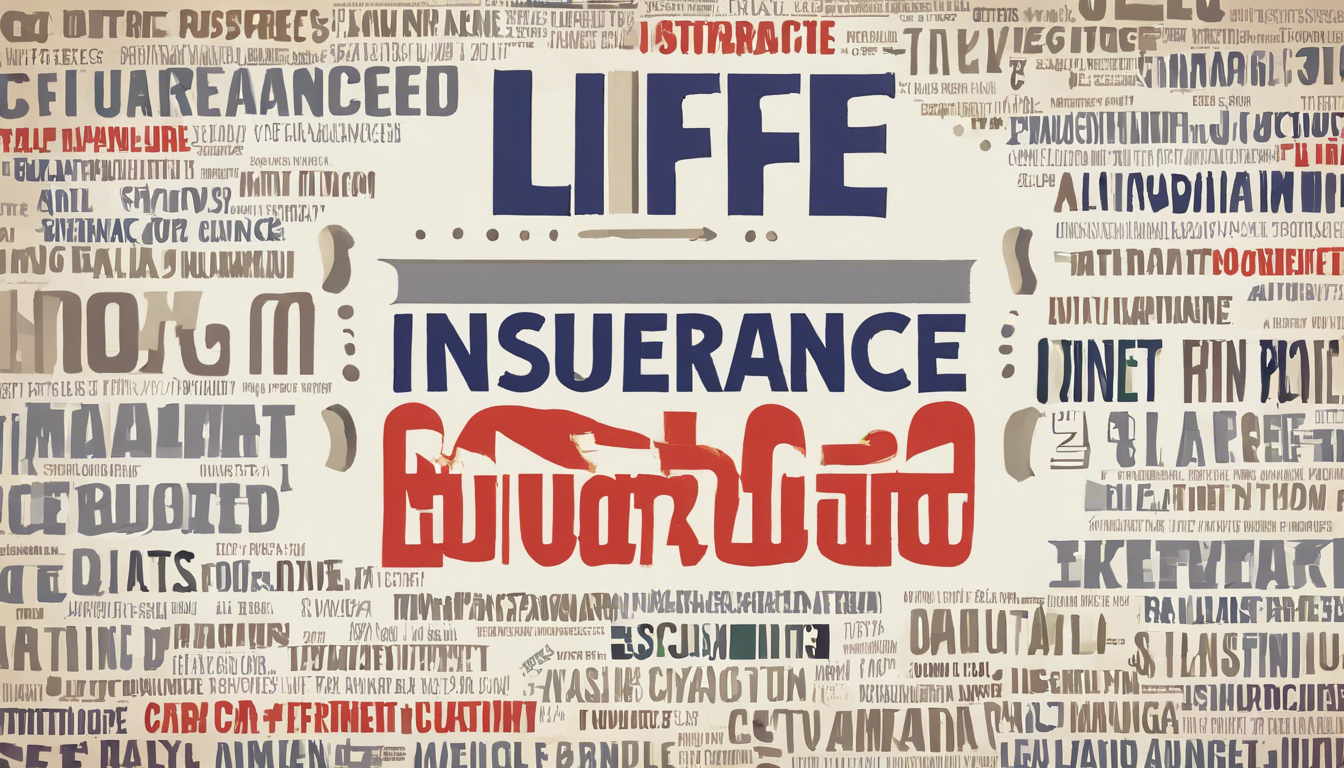Life Insurance
Life is unpredictable, and making sure the financial security of your family members is a priority. If you move away too quickly, life insurance gives a security net to guard your surviving members of the family from monetary destruction. Here are ten compelling explanations why life insurance coverage is important for your loved ones’s future.
1. Financial Security

The main purpose of life insurance is to offer financial security for your family members. Your family members will be able to preserve their lifestyle, make ends meet, and pay their payments on time if the death benefit replaces misplaced revenue.
2. Debt Repayment
Life insurance may additionally help repay cash owed, harking back to mortgages, automotive loans, and financial institution card balances. You should not have life insurance, and your family members might discover themselves in a troublesome monetary scenario as they could be required to settle the debt themselves.
3. Funding for Education
A life insurance policy can make it possible that your youngsters’s education is not compromised. The dying revenue will be utilized to fund college tuition and completely different educational payments, helping your children get hold of their instructional aims.
4. Estate Planning
Life (*10*) could also be an important aspect of property planning. It may additionally assist with property taxes, making sure that your heirs get hold of their inheritance without the burden of nice tax liabilities.
5. Business Continuity
For business homeowners, life insurance coverage protection can current the required funds to keep the enterprise working in your absence. It may additionally assist cowl working payments, repay enterprise cash owed, and facilitate a simple transition of possession.
6. Supplementing Retirement Savings

Certain sorts of life insurance protection, harking back to full life or widespread life, can assemble cash price over time. This cash’s price could also be borrowed in opposition to or withdrawn, providing a supplemental source of retirement earnings.
7. Final Expenses
Funeral and burial costs could also be substantial. Life insurance coverage can cover these closing payments, assuaging the financial burden on your family members all through an already troublesome time.
8. Peace of Mind
Knowing that your family members are financially protected offers you peace of mind. Life insurance protection ensures that your loved one’s members shall be taken care of; it would not matter what the long run holds.
9. Charitable Contributions
Life insurance protection may additionally be used to leave a legacy by making charitable contributions. You can determine a charity as a beneficiary, making sure that your philanthropic aims are met even after you die.
10. Affordability
Life insurance protection is cheaper than many people discover. Term life insurance coverage protection, particularly, presents substantial safety at comparatively low premiums, making it accessible for most households.
Conclusion

Life insurance coverage is an important element of a complete financial plan. By understanding the numerous benefits it offers, you too can make educated decisions to protect your family members’s future. Don’t wait until it is too late—uncover your life insurance coverage choices right now and protect peace of mind for yourself and your loved ones.
Call to Action
Ready to protect your family members’s future? Contact a life insurance protection provider now to check extra on your decisions and get a quote.
Internal Links
- Understanding Different Types of Life Insurance
- Top Tips for Choosing the Right Life Insurance Policy
External Links
Frequently Asked Questions (FAQ)
1. What is life insurance coverage protection, and the best way it works?
Life insurance coverage protection is a contract between you and an insurance coverage protection agency. You pay premiums, and within the various, the insurer offers dying revenue to your beneficiaries upon your demise. This revenue may additionally assist cowl payments and supply financial security.
2. Why do I like life insurance coverage protection if I’m youthful and healthy?
Even in the event you’re youthful and healthy, life insurance coverage protection can present financial security for sudden events. Purchasing protection early may lock in decreased premiums.
3. What’s the excellence between time and full life insurance coverage protection?
Term life insurance coverage gives protection for an explicit interval (e.g., 10, 20, 30 years) and pays a dying revenue in case you die all through that interval. Whole-life insurance coverage offers lifelong safety and comprises a money-worth aspect that grows over time.
4. How much safety from life insurance coverage do I need?
The quantity of safety you require is primarily based on components corresponding to your revenue, debt, dwelling bills, and future monetary objectives. You ought to, in general, have insurance coverage that pays 10–12 occasions your annual revenue.
5. Can I regulate my life insurance coverage’s protection as my wants change?
Yes, a lot of life insurance policies offer flexibility. You can regulate safety portions, convert interval insurance policies to finish life, or add riders to customize your protection based on your changing needs.
6. What are life insurance coverage protection riders, and would I like them?
Riders are additional benefits that may be added to life insurance coverage protection, harking back to accelerated dying benefits, waivers of premiums, or unintended dying income. They improve safety but might increase premiums.
7. Is the death profit from a life insurance coverage topic to taxes?
Generally, the dying revenue is not taxable to the beneficiaries. However, any curiosity earned on the dying revenue after the insured’s demise may be subject to taxes.
8. Can I have many life insurance coverage protection insurance policies?
Yes, you possibly can have many life insurance coverage protection insurance policies to fulfill completely different financial needs or complement current safety. But insurers might take into consideration your full protection when issuing new insurance policies.
9. What happens if I miss a premium price?
If you miss a premium price, your protection might lapse after a grace interval. Some insurance policies present decisions to reinstate safety in the event you pay the missed premiums within a certain timeframe.
10. How do I choose the correct life insurance coverage protection provider?
Select a respected insurance coverage firm with sturdy monetary rankings and constructive buyer opinions. Consider parts harking back to protection decisions, buyer assistance, the claims course, and premium rates when making your willpower.

